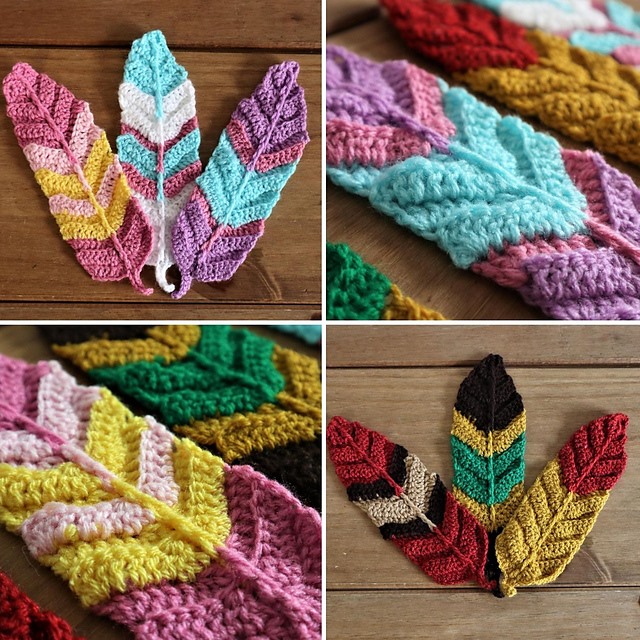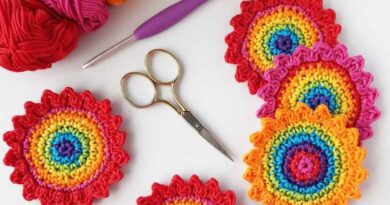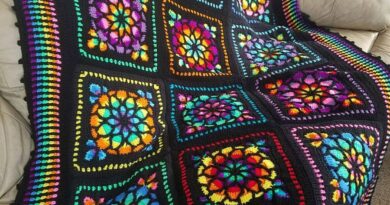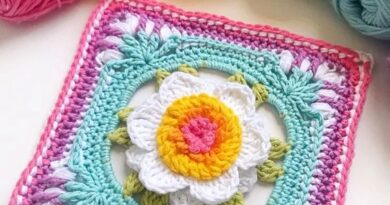Tunisian feathers crochet
Tunisia, a land rich in cultural heritage, has long been celebrated for its exquisite traditional crafts. Among the many artistic expressions, Tunisian feathers crochet stands out as a testament to the nation’s commitment to preserving its artistic legacy. Beyond their cultural significance, these delicate creations are becoming a catalyst for a modern transformation – the shift from traditional crafts to entrepreneurial ventures.
Tunisian feather crochet is deeply rooted in the country’s history, which dates back centuries. Passed down from generation to generation, this art form involves complex feather manipulation, weaving and coloring techniques. The sustainably sourced feathers represent not only artistic feats but also a connection to nature and ethical craftsmanship. The artisans behind Tunisian feather making are true masters of their craft because each feather is carefully chosen, cleaned and then transformed into fascinating pieces of art.
The process requires skill and patience, as artisans work delicately to bring out the vibrant colors and intricate patterns that define Tunisian feather art. In recent years, there has been a revival in the appreciation of traditional crafts around the world, as Tunisian feather crafts, with their unique blend of history and art, have attracted international attention. This renewed interest not only elevated the status of this craft, but also opened up new economic possibilities for artisans.

Empowering artisans: From crafts to business
Recognizing the economic potential of their skills, Tunisian artisans are increasingly transitioning from traditional crafts to entrepreneurship, because by forming cooperatives and small businesses, they not only sustain their crafts, but also create employment opportunities in their communities. This shift signifies a move away from mere survival to empowerment.
Challenges and opportunities that Tunisian feather crochet brings
Entering the global market is a double-edged sword for Tunisian feather artisans, because although this type of art presents an opportunity to showcase their unique products to a wider audience, it also presents challenges such as competition and adapting to international standards. . However, organizations and initiatives are emerging to provide support, training and market access to these entrepreneurs.
Entrepreneurial efforts in Tunisian feather crochet are not just about economic gains, but also about social impact. As companies grow, they contribute to community development by providing better standards of living, education and healthcare. The ripple effect of entrepreneurship in traditional crafts goes beyond individual artisans, promoting positive transformation in society.
A key aspect of the transformation from craftsmanship to entrepreneurship is the infusion of innovation while preserving tradition. Artisans are exploring contemporary designs, collaborating with designers and incorporating sustainable practices to meet evolving consumer preferences. This adaptability guarantees the longevity of Tunisian feather crochet in a dynamic market.
Building a brand: the rise of Tunisian feather art
With an increasing emphasis on branding and storytelling, Tunisian feather artisans are not just selling products, because they are selling stories. The unique cultural narrative behind each piece adds significant value, attracting conscious consumers who appreciate the authenticity and cultural richness embodied in Tunisian feather crafts.
As Tunisian feather crochet continue to evolve into entrepreneurial ventures, the future looks bright because with a blend of tradition, innovation and a focus on ethical business practices, these ventures are poised to thrive in a global market. The journey from craftsmanship to entrepreneurship is not just about economic success; it is a commitment to preserving the soul of Tunisian artistic heritage.
In conclusion, the transformation of Tunisian feather crochet from a traditional art form into a thriving entrepreneurial venture is a testament to the resilience and adaptability of cultural heritage. As artisans embrace entrepreneurship, they not only secure the future of their craft, but they also contribute to the socioeconomic development of their communities. The journey from artisan to entrepreneur is a delicate dance between tradition and innovation, and in Tunisia, it is a dance that promises to leave lasting marks on both cultural heritage and economic landscapes.
So, let’s improve?
If you are looking for a way to start a business and make a profit from crocheting, Tunisian feathers crochet is a great option. So, let’s improve your knowledge even further? How about you check out this link? I emphasize that the credits for the images and model content go to the official website.
Free step by step here: Tunisian feathers crochet




